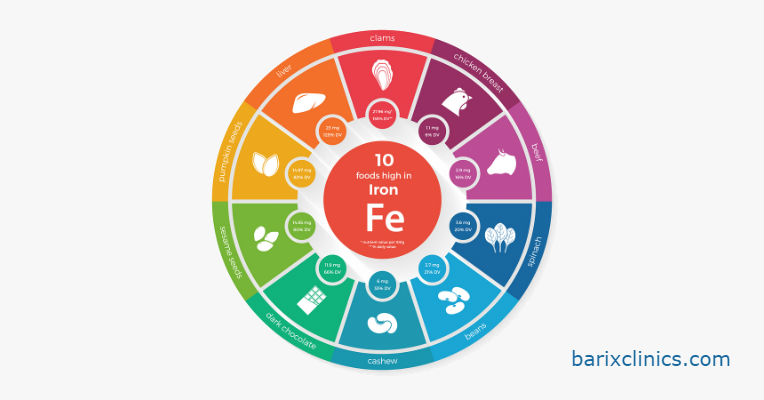Iron
Iron has many important roles in the body, including oxygen transportation, immune function, and exercise performance. The recommended dietary allowances for iron are 15 mg for women and 10 mg for men.
Some post bariatric surgery patients develop iron deficiency. There are three main contributing factors that cause this to occur. Red meat, containing the best-absorbed form of iron (heme iron), is often limited due to tolerance. The lowered acid environment, created by (both the gastric sleeve and gastric bypass) surgery, decreases absorption. Gastric bypass surgery results in the primary absorption site for iron, the first section of the small intestine, being bypassed.
Iron supplementation, for those who require it, poses some challenges as well with nausea and constipation as common side effects. Iron supplements are best absorbed when taken on an empty stomach with a source of vitamin C, such as ¼ cup of orange juice. They should not be taken with a multi vitamin and mineral supplement or a calcium supplement since the calcium competes with iron for absorption. Enteric coated tablets may not dissolve easily and will decrease absorption. It’s important to only take iron supplements when lab values indicate a need and your physician directs you to do so.
Including foods that are a good source of iron in your diet can help to prevent a deficiency. There are two types of iron found in foods, heme iron and non-heme iron. Heme iron is much better absorbed. Forty percent of the heme iron from food is absorbed compared to 10% of the non-heme iron. Absorption improves when you combine an iron containing food with an acidic food, such as ground beef mixed with spaghetti sauce. Cooking in an iron skillet can also increase the iron content of food.
Download On Track with Barix: Common Post-op Vitamin Deficiencies


